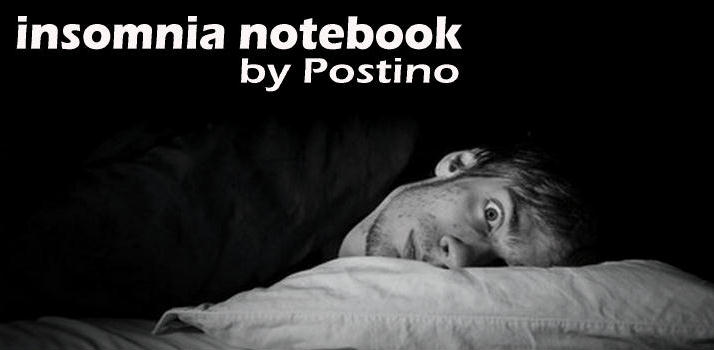
I saw the movie Westworld on its first run, and thought I'd watch it again to see if it was anything like what I remembered. I'd forgotten a few details but as it turned out it had impressed me enough the first time that my memories were mostly intact.
The movie, whose advertising tagline is, "Where nothing can possibly go worng" (sic) is a great example of Murphy's Law: "If anything can possibly go wrong, it will." As much as human beings strive for zero defects, occasionally something will go horribly out of kilter.
In the case of Westworld, this is why Peter, played by Richard Benjamin, is in such a jam. A robot, programmed as a gunslinger, is stalking him. Robots in the resort are normally programmed to never harm humans (the Isaac Asimov "Three Laws of Robotics"), but something has gotten screwed up. Benjamin has already shot and "killed" the gunslinger twice, and now it's the robot's turn.
 Besides that, the other underlying theme behind the movie is the pleasure principle. In a futuristic amusement park full of robots built to respond to human needs and worst tendencies, you can do what you want. At Westworld, as well as its sisters within the $1000-a-day Delos park, Romanworld and Medievalworld, people are allowed to interact sexually with the robots. Peter is able to have sex with a Western-style prostitute, and it's plain that women and men go to Romanworld to take part in the orgies (inferred, not shown). In the late 1960s and during the 1970s there was a sexual revolution which meant that people felt free to go nuts. It had a lot to do with the times, but nowadays Las Vegas is catering to that crowd with its slogan, "What goes on in Vegas stays in Vegas." Uh huh. Go to Vegas, get a hooker or have an affair, take drugs...and when you go home it was all part of your Vegas vacation and you are absolved of any sins or wrongdoing. Whoever thought up that slogan should be given a prize of some sort of pointing out the obvious, that Vegas is a town where people are encouraged to do things they might not otherwise do.
Besides that, the other underlying theme behind the movie is the pleasure principle. In a futuristic amusement park full of robots built to respond to human needs and worst tendencies, you can do what you want. At Westworld, as well as its sisters within the $1000-a-day Delos park, Romanworld and Medievalworld, people are allowed to interact sexually with the robots. Peter is able to have sex with a Western-style prostitute, and it's plain that women and men go to Romanworld to take part in the orgies (inferred, not shown). In the late 1960s and during the 1970s there was a sexual revolution which meant that people felt free to go nuts. It had a lot to do with the times, but nowadays Las Vegas is catering to that crowd with its slogan, "What goes on in Vegas stays in Vegas." Uh huh. Go to Vegas, get a hooker or have an affair, take drugs...and when you go home it was all part of your Vegas vacation and you are absolved of any sins or wrongdoing. Whoever thought up that slogan should be given a prize of some sort of pointing out the obvious, that Vegas is a town where people are encouraged to do things they might not otherwise do.Westworld, written and directed by the late Michael Crichton, was a huge success at the box office in 1973, and it could be this message of sin that struck the audience of the time. Maybe a lot of conservative people who saw it thought people out getting laid deserved what happened to them, so having the hedonistic pleasure-seekers pay for their sins with their lives was appealing.
The casting is strange in parts. I thought Yul Brynner was an odd choice to play the robot gunslinger, until I read the robot was modeled after Brynner's character in The Magnificent Seven, even to wearing the same clothes. Brynner was shorter than the other lead actors, and he had a protruding belly. Luckily he didn't have much to say, other than act like a robot. Brynner always struck me as a silent movie actor in a sound movie era. He didn't seem to have a natural stance, but appeared to be posing all the time, and no matter the part, like Ahnold Schwarzenegger, he had his accented voice (in Westworld his dialogue was so sparse, maybe less than a page worth, that he mostly lost his accent), with which he delivered his lines in a melodramatic style. Richard Benjamin and James Brolin, as the other leads, were very good.
 Westworld panders to a fantasy people have, that you can have sex without any kind of commitment (after all, they're only robots), and/or that you can kill without fear of punishment (after all, again only robots). If someone were to actually provide such a service there would be a lot of horny wannabe serial killers out there breaking down the gates to get in. The other message is that if you play you pay, sometimes with your life.
Westworld panders to a fantasy people have, that you can have sex without any kind of commitment (after all, they're only robots), and/or that you can kill without fear of punishment (after all, again only robots). If someone were to actually provide such a service there would be a lot of horny wannabe serial killers out there breaking down the gates to get in. The other message is that if you play you pay, sometimes with your life.
No comments:
Post a Comment